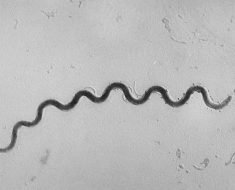A gene that is overexpressed in some aggressive cancers also appears to be key to the excessive cell proliferation that thickens the walls of pulmonary arteries and ultimately causes the right ventricle of the heart to fail, scientists report.
They have the first evidence that PBK, or PDZ-Binding Kinase, is upregulated in both animal models and the lung tissue of patients with progressive and deadly pulmonary hypertension, says Dr. David Fulton, director of the Vascular Biology Center at the Medical College of Georgia.
They've found that in pulmonary hypertension, PBK is "robustly" upregulated in the middle layer of the walls of pulmonary arteries, called the tunica media, where smooth muscle cells reside and where they along with elastic and connective tissue, help regulate the size of the passageway for blood."
Dr Scott Barman, Pulmonary Vascular Biologist, MCG Department of Pharmacology and Toxicology, Medical College of Georgia at Augusta University
The scientists also have found that adjustments they make, up and down, in PBK expression impact the proliferation of those smooth muscle cells.
Fulton and Barman are now principal investigators on a $2.5 million grant (1R01HL156646-01A1) from the National Heart, Lung and Blood Institute that is helping them further explore the pathway, including the impact of PBK inhibitors already under study for some of those aggressive cancers.
In their rat and mouse models of pulmonary hypertension, they have early evidence that PBK inhibitors reduce unhealthy remodeling of blood vessels and improve heart and lung function. In what is called a reversal model, which mimics how drugs would be used in people, when the animal models start to show signs of the disease, treatment is given and they get better, Barman says.
The new grant is enabling them to learn more about just how PBK regulates smooth muscle cell proliferation in the pulmonary arteries, including using a rat where the PBK gene has been knocked out.
They are using two main PBK inhibitors -; OTS514 and TOPK-32 -; at different doses to see if, for example, higher doses mean further reduction in cell proliferation, Barman says. Small doses used in their work to date yielded "amelioration."
PBK is known to be overexpressed in cancers, like bladder, lung, liver and brain tumors where its high expression is generally associated with a worse prognosis. In fact, the rapid cell division and resulting excessive cell production is similar in pulmonary hypertension and cancer, the scientists say.
"We were looking for genes involved in promoting smooth muscle proliferation that also are in cancer," says Fulton. "It's the uncontrolled proliferation that is the problem, and we are looking for targets that we could exploit to decrease it."
Current treatments, like vasodilators and oxygen therapy, address symptoms but don't halt disease progression. A lung transplant is considered the only potential cure.
"People need help and we think this offers one avenue toward helping. That is why we like it," Fulton says. "We think it's a good target."
The MCG scientists are the first to look at PBK in pulmonary hypertension. Fulton categorizes it as a -; not the only -; regulator of cell proliferation, and when it's knocked out, animals still develop. But in pulmonary hypertension it's an early player.
Looking upstream of PBK, they found that YAP1, yes associated protein 1, known to activate other genes that enable cell proliferation and quieten those that cause cell death, or apoptosis, (which can kill off excessive or otherwise unhealthy cells) also is upregulated in pulmonary hypertension, where it increases the activity of PBK in those smooth muscle cells inside the walls of pulmonary arteries.
Looking downstream they have found PBK in turn upregulates protein regulator of cytokinesis 1, or PRC1. Cytokinesis is when one cell divides into two cells and all together the bottom line is unhealthy remodeling of pulmonary arteries and pulmonary hypertension.
"We think YAP is an upstream driver of proliferation that activates PBK expression in the pulmonary smooth muscle cells," Fulton says. What is driving YAP activation is unknown but the scientists are more focused on what's happening downstream. YAP is expressed in a lot of different cell types, but its unique ability to activate PBK makes PBK itself a good, druggable target, he notes.
When they are done with the five-year term of the new NHLBI grant, they expect to have solid scientific evidence about whether PBK is the solid target they think, Barman says. The fact that inhibitors already exist should expedite the process of pursuing trials in humans from there, he says.
They anticipate PBK inhibition would be an adjunct therapy for patients that will more directly target a clear point of action in the disease process.
In cancer, as an example, Korean and China investigators have the first laboratory evidence that OTS514 stops the abnormal proliferation of cancer cells and growth of cancer stem cells and induces natural cell death, or apoptosis, in human myeloma cell lines, resulting in a significant reduction in tumor size. Scientists also have some laboratory evidence that TOPK-32 can reduce colon cancer cell growth and increase death of those cells and may have benefit in the aggressive brain tumor glioblastoma.
All of our blood volume -; the average human has about 10 pints -; must continuously go through the billions of air sacs in the lungs. Pulmonary hypertension is characterized by an unhealthy remodeling of the pulmonary arteries, which take deoxygenated blood from the right side of the heart into the capillaries of the lungs where carbon dioxide can be removed and oxygen replenished. The blood then goes to the left ventricle, the major pumping chamber of the heart, which pumps the now oxygen-rich blood back out to the body.
But with this condition, the blood passageway, called the lumen, shrinks. The resulting increased resistance inside pulmonary arteries can result in enlargement and ultimately failure of the right ventricle of the heart from having to constantly work so hard against the resistance, Fulton says.
As with most things in the body, some cell growth and death is normal. "When the balance gets shifted is when you start having problems," says Barman.
There also is recruitment of other cell types to the site, like immune cells and fibroblasts which secrete collagen to help tissue be compliant, but the smooth muscle cells are the primary culprit, Barman says.
Pulmonary hypertension is a rare, progressive condition, most common in women between the ages of 30 and 60. The cause is unknown in about 25% of cases, genetics may be a factor in another 15-20% of individuals. Pulmonary hypertension also may result from numerous other conditions like scleroderma and congenital heart abnormalities as well as some drugs like methamphetamine and cocaine; infections like HIV and schistosomiasis; and cirrhosis of the liver, according to the American Lung Association.
The MCG scientists had earlier identified another novel treatment target for the condition, galectin-3, a gene and protein also highly expressed in pulmonary hypertension, specifically in the middle layer of the blood vessel wall, where they have now found high expression of PBK. They have similarly found that turning galectin-3 expression up and down, affects cell proliferation.
"We have identified that galectin-3 also is important in pulmonary hypertension, that it is also a druggable target and we have a new grant pending on the mechanism by which this occurs," Fulton says. For these studies their drug is a neutralizing antibody, a term made commonplace by the Regeneron treatment for the COVID-19 virus.
Medical College of Georgia at Augusta University
Posted in: Medical Science News | Medical Research News | Medical Condition News
Tags: Antibody, Apoptosis, Bladder, Blood, Blood Vessel, Blood Vessels, Brain, Brain Tumor, Cancer, Capillaries, Cell, Cell Death, Cell Division, Cell Production, Cell Proliferation, Cirrhosis, Collagen, Colon Cancer, Drugs, Fibrosis, Gene, Genes, Genetics, Glioblastoma, Heart, HIV, Kidney, Kinase, Laboratory, Liver, Lung Transplant, Lungs, Muscle, Myeloma, Oxygen, Oxygen Therapy, Pharmacology, Proliferation, Protein, Pulmonary Hypertension, Schistosomiasis, Scleroderma, Stem Cells, Toxicology, Transplant, Tumor, Vascular, Virus
Source: Read Full Article





